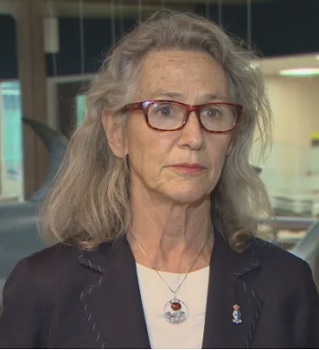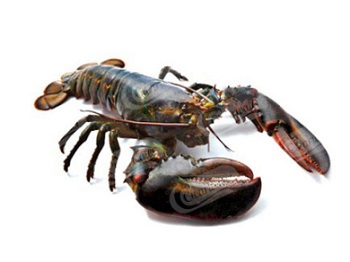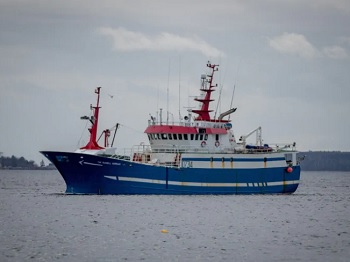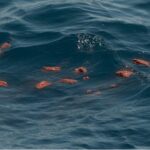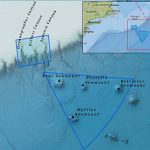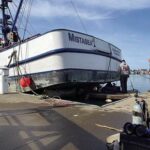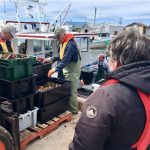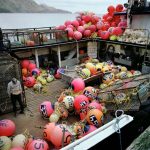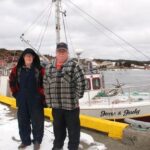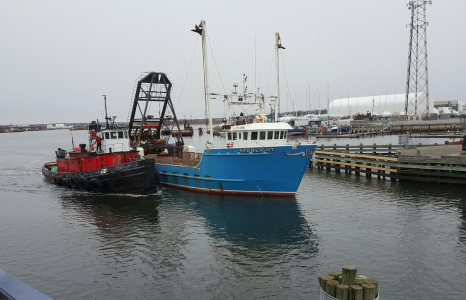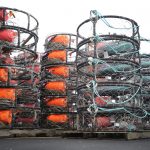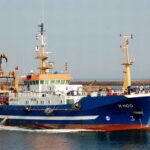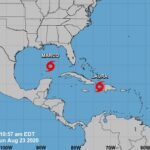Tag Archives: Atlantic Canada
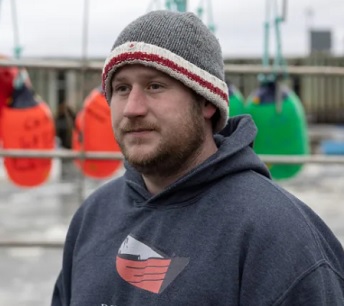
Atlantic Canada seafood sectors surged in 2021
In Riverport on Nova Scotia’s south shore, lobster fisherman Jason Conrad remembers when the pandemic hit in the spring of 2020 and the price of lobster plummeted to $4 a pound — below what it cost him to catch a lobster. Last month, Conrad was getting over $14 a pound — a sign of industry recovery that began at the end of 2020. “It rebounded way faster than I thought it would,” he said. Snow crab increases huge, A Banner year for lobster, More money for repairs, new boats >click to read< 10:25
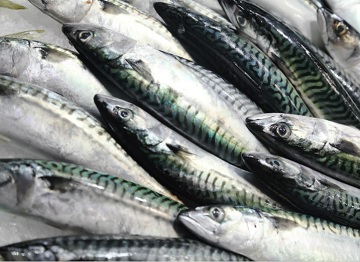
Where Did All the Mackerel Go?
Summer in Atlantic Canada can be unreliable, emerging reluctantly from the damp cold of spring. But a sure sign of its arrival is the sudden presence of Atlantic Mackerel, Slipping away is already something of a mackerel specialty as they dart from their winter habitat, in the deep water along the continental shelf stretching from Nova Scotia to North Carolina, to their inshore summer spawning grounds. For the so-called northern contingent, from which the Canadian catch is derived, these spawning grounds are in the Gulf of Saint Lawrence; for their southern counterparts, summer is spent on the mid-Atlantic coast up to the Gulf of Maine. >click to read< 09:55
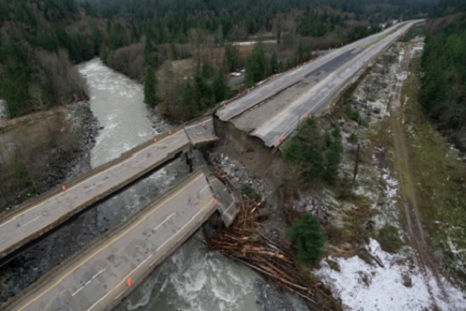
Devastating Damage from B.C., Atlantic storms no easy fix
The rainstorms in British Columbia and Atlantic Canada have impacted livelihoods, with damaged highways and rail lines cutting off communities and hampering key supply chain routes. Unprecedented rainfall from atmospheric rivers in B.C. and the Maritimes has dropped hundreds of millimetres worth of rain — surpassing in days the totals some regions see in a whole month. Video, photos, >click to read< For a page of some amazing stories from both coasts, with more being added as we find them. >click to read< 14:16
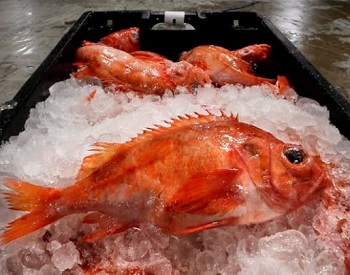
Redfish return sparks Atlantic race to cash in on reopening of commercial fishery
The centre of attention is a large section of the gulf known as Unit 1, stretching from the western coast of Newfoundland across to Quebec’s Gaspé Peninsula and down toward the northern tip of Cape Breton. A federal Fisheries Department moratorium on commercial fishing of redfish was imposed in the area in 1995 and has remained in place ever since. But from 2011 to 2013, research showed that three robust redfish cohorts had propelled growth in the overall stock. “There’s probably more redfish in the Gulf of St. Lawrence now than we’ve ever seen in our recorded history,” >click to read< 07:19

Access: Fight over emerging redfish fishery amps up as offshore sector bites back
In a highly managed media event staged at Memorial University’s Signal Hill campus, officials from the Atlantic Groundfish Council, which represents more than 100 offshore groundfish licence holders in Atlantic Canada, and Ocean Choice International, fought back against what they say is an attack that threatens the livelihood of people linked to the offshore sector. “It’s time this attack stops. It’s negative. It’s divisive and it’s not good for the province,” said Martin Sullivan, CEO and co-owner of Ocean Choice International,,, >click to read< 07:51
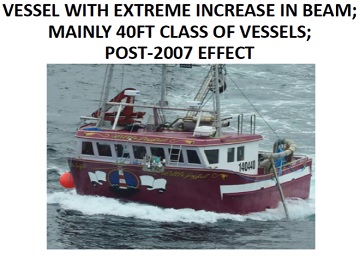
DFO rules forcing fishing industry into unstable boats
The ability to safely navigate in rough seas is not only dependent on experience. Boat design and stability are also crucial factors. And vessel stability expert Dag Friis says the current trend in Atlantic Canada to build wider fishing boats, to create more deck space and to comply with the maximum vessel length criteria set by the Department of Fisheries and Oceans (DFO), is putting those boats, and their crews, at risk. photos, >click to read< 15:02
Tropical depression making its way toward Nova Scotia
Claudette, a tropical depression, may affect Atlantic Canada on Tuesday. The depression claimed 12 lives Saturday at it passed through Alabama and brought flooding to a number of southern U.S. states. According to the Canadian Hurricane Centre, the depression is moving over the southeastern U.S. today and tonight and is expected to move back over the ocean overnight and regain tropical storm strength off the Carolinas. >click to read< 16:26
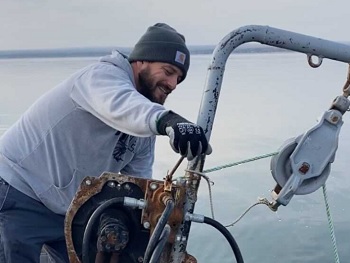
A group of Indigenous Fishermen want to take the Government of Canada to court with a class action lawsuit
Cody Caplin is frustrated. “They just keep taking away from me and my family,” he says. “The “they” he’s referring to are officers from the federal Department of Fisheries and Oceans, who Caplin alleges keep him under surveillance. He says these officials are often around when he comes back to the wharf from fishing. “If we go drop traps, they’ll park their vehicle, walk on down to our boat, and say ‘you guys can’t put those traps in the water without tags.’ [And I’ll say] ‘well, actually, we can,’” he says. That’s why Caplin is part of a group of Mi’kmaq fishermen from across Atlantic Canada looking to launch a class action lawsuit against the Canadian government, claiming that their rights are not being respected. >click to read< 20:33
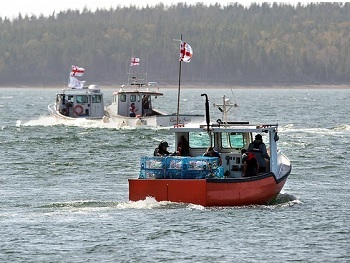
Minister Jordan issues statement on cooperative path forward with Potlotek First Nation moderate livelihood fishery
“I am pleased to announce today that we have reached an understanding that will see Potlotek First Nation fishing for a moderate livelihood and selling their catch starting Saturday, June 5, 2021.” As an interim measure, we will be recognizing those harvesters designated under Potlotek’s plan to be authorized to fish 700 jakej (lobster) traps without adding additional access and during the established season underway in Lobster Fishing Areas 27, 28, 29, 30 and 31a – which is within the Unama’ki region and aligns with Potlotek’s identified traditional district. The Unama’ki region is one of the seven Mi’kmaq districts in Atlantic Canada and Quebec, and spans Cape Breton Island. >click to read< 14:19
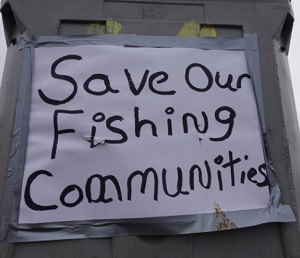
Prospect-area mackerel fishermen haul after DFO sets season quota
“Mackerel is a big part of our living around this coast and always has been,” Darrell Countway said, a fisherman and member of the Prospect Area Full-Time Fishermen’s Association. Countway is one of the dozens of fishermen who were ready to set up a roadblock if the Department of Fisheries and Oceans (DFO) further delayed their season. “It would have been three, four months’ worth of work for no pay,”,,, DFO eventually set the quota at a 50 per cent reduction from last season at a 4,000-tonne total allowable catch for the fisheries in Atlantic Canada and Quebec. Video, >click to read< 07:20
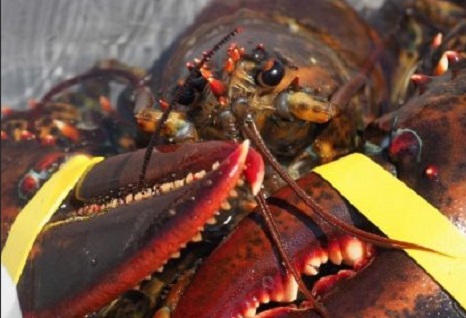
Canada: History shows a path to resolve lobster fisheries dispute
As we reflect on recent violence in Nova Scotia over the lobster fisheries, it’s important to know if there are any precedents around the core issues and if prior instances can help guide us now. The case of the Saugeen Ojibway of the Great Lakes provides some particularly useful insights to help reach a settlement to the lobster fisheries dispute. Conflict between Indigenous peoples along the Great Lakes and the state has been around since the rise of non-Indigenous commercial and sport fishing around the 1830s and 1840s. In the 1990s, things came to a head,,, >click to read< 08:29
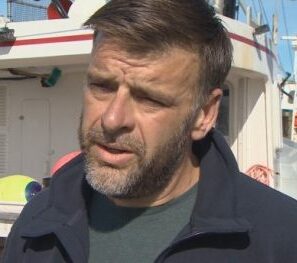
Commercial fishermen seek intervenor status in First Nation’s lawsuit
A group representing commercial fishermen in Atlantic Canada wants to be part of the lawsuit the Sipekne’katik First Nation has launched against the provincial government. The Unified Fisheries Conservation Alliance has applied for intervenor status. In a news release announcing its intention to try to join the court action, the alliance said it supports the Indigenous right to fish and sell their catch. However, spokesperson Colin Sproule said, “We are opposed to anyone, Indigenous or non-Indigenous, selling fish caught outside federal or provincial regulations related to size, season and quota.”>click to read< 09:18
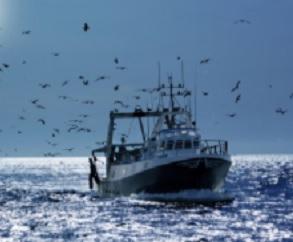
Federal Government and Province of Nova Scotia Invest More Than $44M in the Fish and Seafood Sector
The funding will support 11 projects focused on the adoption of new technology and partnerships that will improve the effectiveness and sustainability of the fish and seafood sector. The funding will enable these local organizations to provide high quality seafood and to preposition their organizations for a successful return to regular business in a post COVID-19 world. The Atlantic Fisheries Fund will continue to invest in projects over the seven-year life of the program. The commercial fisheries and aquaculture industry, Indigenous groups, universities, academia, industry associations and organizations, including research institutions, may apply. >click to read< 14:58
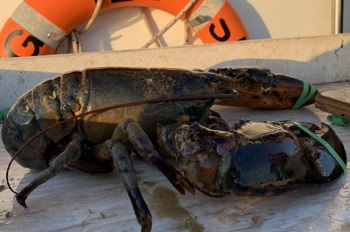
Lobster: the last, best fishery – Part 2, The new cod?
“Another likely contributing factor is the large amount of food the fishery provides to lobsters, as many lobsters escape traps after having fed on its bait; it has been said that we are basically ranching lobsters,” says Rochette. Also, as reported in Part 1, increasing water temperature has so far been 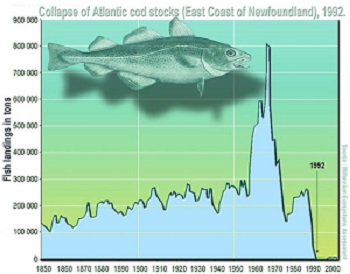 favourable to lobsters in Canada, given we are in the northern part of the species’ range. But for how long can that last, as waters continue to warm? And what lessons have we learned from the collapse of the groundfish stocks? Could lobsters be the new cod? photos, graphs, video, even Boris Worm! >click to read< Part 1, November 26, 2020 >click to read< 13:18
favourable to lobsters in Canada, given we are in the northern part of the species’ range. But for how long can that last, as waters continue to warm? And what lessons have we learned from the collapse of the groundfish stocks? Could lobsters be the new cod? photos, graphs, video, even Boris Worm! >click to read< Part 1, November 26, 2020 >click to read< 13:18
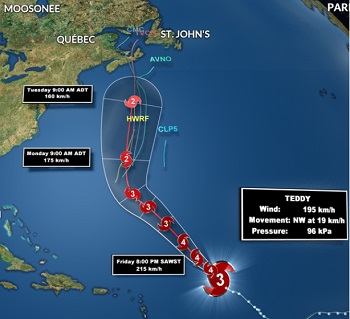
Hurricane Teddy continues its path toward Atlantic Canada
Hurricane Teddy will likely impact Atlantic Canada and the Gulf of St. Lawrence region as a strong post-tropical storm over Tuesday and Wednesday, said an information statement issued by Environment Canada. In the statement issued early Saturday morning, Environment Canada said Teddy is currently a category three system over the Tropical Atlantic well southeast of Bermuda. Over the next two days, it will slowly move up, passing east of Bermuda on Monday, when it will begin to accelerate towards Nova Scotia. >click to read< 09:48
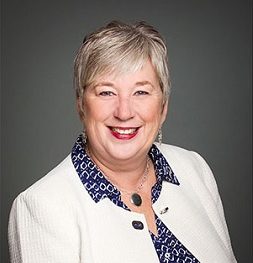
Atlantic Canada Fish harvesters still waiting for federal Coronavirus aid to flow
As the policy analyst for CFIB in P.E.I., in early May I worked with my colleagues to write a letter to the Minister of Fisheries and Oceans and Member of Parliament for Nova Scotia’s South Shore, Bernadette Jordan. This letter pleaded for help for fish harvesters, the folks who risk their lives on the water harvesting one of Atlantic Canada’s most important resources and exports, lobster. Lobster harvesters were deeply concerned about a quickly evaporating market and a glut of product driving down the price of their livelihood.,, While this was going on, the federal government was rolling out its array of programs to subsidize business: the Canada Emergency Business Account (CEBA) , the Canada Emergency Response Benefit (CERB), the Canada Emergency Wage Subsidy (CEWS) and the Canada Emergency Commercial Rent Agreement (CECRA). by Marley Kingston >click to read< 07:43

Here’s how to get a piece of $62.5 million in fish processors’ Coronavirus aid
It’s been two months since the federal government rolled out a $62.5-million aid package to support seafood processors affected by Coronavirus, and a $469 million program to aid fish harvesters. So far no one has seen a cent of funding from either package. Today, June 16, seafood processing companies are a little closer. Bernadette Jordan, Minister of Fisheries and Oceans Canada, announced details of how the $62.5 million from the Canadian Seafood Stabilization Fund (CSSF) will be divvied up across Canada, and how to apply. Of the $62.5 million, Atlantic Canada gets the lions’ share — $38.1 million. Seafood processors in Quebec and Western Canada will also get a share of CSSF. >click to read< 14:48

Coronavirus: Atlantic Canada’s fishing industry calls on feds for help
Crab and lobster fisheries throughout Atlantic Canada have faced delayed season openings due to fears about the coronavirus spreading in small communities and close working conditions. A significant drop in prices due to a collapse in retail and restaurant markets in the United States, Japan and China, major export markets for Canada’s seafood, overshadow the start of the season for many. Responding to a question during Tuesday’s virtual House of Commons meeting, Fisheries Minister Bernadette Jordan said support for the industry would be announced in the coming days, but by Thursday no additional details were available. >click to read< 09:09
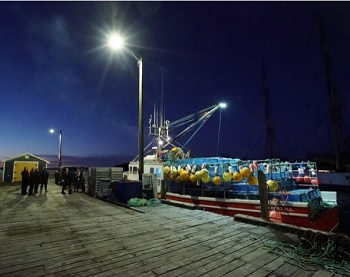
Federal Fisheries Minister Bernadette Jordan says financial aid for fishermen in Atlantic Canada is days away.
The pledge comes amid both economic and health concerns caused by the Coronavirus pandemic and $252 million in aid announced for Canadian farmers and food processors this week. The pandemic has already delayed the start of the lucrative spring lobster fishery in the Gulf of St. Lawrence as processors warn about slumping demand and their ability to safely process the glut that will arrive when catches land after the season opens May 15. “We know that [harvesters are] going to have some very challenging times this season and we will have more to say about that and what we will be able to do in the coming days,” Jordan said Tuesday during a virtual sitting of Parliament. >click to read< 11:15
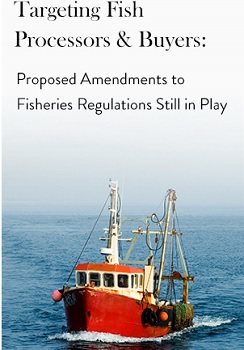
Proposed Fisheries Regulation Amendments Target Fish Processors & Buyers
The Fall 2019 re-election of the Liberal government means the proposed amendments to federal fisheries regulations remain a concern for industry participants.,, However, the government has, to date, not implemented the amendments. The proposed amendments target arrangements that transfer license rights and privileges from license holders to third parties. In the Statement, the Minister notes the perceived narrowness of the definition of “Controlling Agreement”,, McInnes Cooper has prepared this document for information only,, >click to read< 12:27
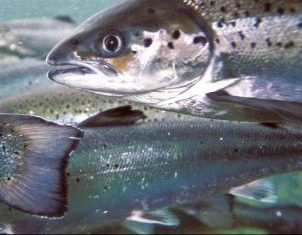
Stewart Lamont, Tangier: Finally! Salmon feedlots fall victim to federal election
Events are developing quickly. The federal Liberals and the Greens have made a pre-election pledge in British Columbia to transition from open-net pen feedlot fish to on-land closed containment only, by 2025. This policy advisory, issued 16 short days before a federal election, changes absolutely everything. It came out of the blue, and both parties are to be heartily congratulated. You and I might ask why the same commitments are not being made here in Atlantic Canada. >click to read< 12:46
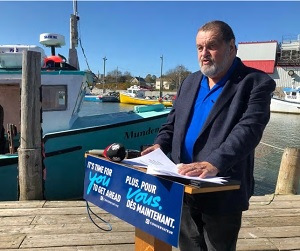
Conservatives announce fisheries plan, pledges to consult with communities on MPA’s, rebuilding fish stocks
Conservative candidates at four separate events in Atlantic Canada on Sunday unveiled the party’s plans to support the fisheries and to try to build consensus on how to restore fish stocks. In Glace Bay, N.S., Alfie MacLeod and Eddie Orrell announced their party will consult with communities on Marine Protected Areas (MPAs), commit an additional $250 million to the Small Craft Harbours program and create a “modern aquaculture act.” “We’ve seen how over the last four years Justin Trudeau has taken this province for granted,,, >click to read< 18:50
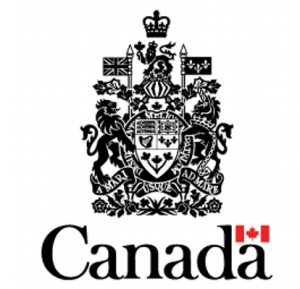
Fatal Port Hood fishing accident probe slowed due to backlog
The Transportation Safety Board says it’s dealing with a large number of marine incidents in Atlantic Canada and that’s slowing down the investigation process. For example, an investigation is still ongoing into a fishing accident that caused two deaths near Port Hood, N.S., more than a year ago. Hugh Watts and Glen MacDonald died after the Ocean Star II capsized about 100 metres offshore in May 2018. The TSB launched what’s known as a Class 4 investigation, which the agency said is a kind of probe that is limited in scope and usually completed within 200 days. It’s been more than 400 days since the investigation started. >click to read< 08:46
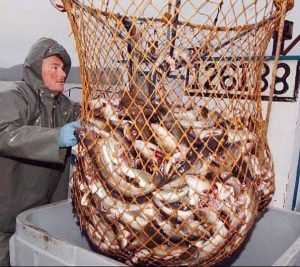
CETA and Atlantic Canada’s fishery: From international trade to the outport stage
As trade grows between Canada and the European Union (EU), the results of this international partnership are washing ashore in fishing outports across the province. The fishery, which was historically the economic foundation of Newfoundland and Labrador, is today an industry continuously beset by cuts, declines and uncertainties. But in recent years, words of hope and rebound are growing in the public discourse. With tariffs declining and opportunities arising, the Comprehensive Economic and Trade Agreement (CETA) between Canada and the EU has the potential to play a key role in the livelihoods of harvesters and processors. >click to read<11:12
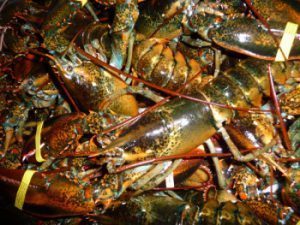
Collusion or delusion? – Welcome to spring 2018 and a more realistic lobster market reality for P.E.I. fishermen
The lobster sector: The port-by-port, wharf-by-wharf lobster sector. More, specifically, the price to the fishermen at any given moment on any wharf throughout Atlantic Canada. Is there a topic about which more is said publicly that is scandalously inaccurate? Does anything generate more publicity than lobster pricing and competitive practices? Is there any price high enough to satisfy those complaining about $6 per lb.? There should be a requirement that to comment publicly, from the vaunted editorial perch, the Charlottetown editors would have at least done a tiny bit of homework. >click to read<08:26
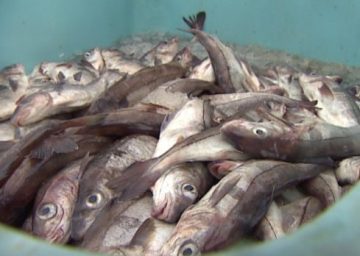
DFO stock assessment – Halibut and Haddock flourishing, cod struggling
Wild food fish populations off Atlantic Canada continue to confound scientists, with some species flourishing and others floundering. The latest examples are halibut and cod. The big flatfish is flourishing off Nova Scotia and Newfoundland, according to the latest stock assessment released by the Department of Fisheries and Oceans. However, another new DFO report shows cod stocks off southern Nova Scotia remain in dire shape.,,,Yellow flounder is another species that is struggling. >click to read< 14:56

FISH-NL issues warning to DFO on changes to harvester registration in Atlantic Canada; NL system not working
“The Professional Fish Harvester Certification Board (PFHCB) is not working here in terms of a conflict of interest with the FFAW-Unifor, and it’s not working for people attempting to enter the fishery,” says Ryan Cleary, President of FISH-NL. “DFO should not give the PFHCB any more authority than it already has, review its relationship with the FFAW-Unifor for conflict of interest, and insist that the Board modernize its qualifying criteria.” DFO is looking for feedback on proposed changes to the requirements for fish harvester registration in Atlantic Canada. The deadline for feedback is Wednesday, Jan. 31st. >click here to read<14:54
DFO concerned by deaths of 5 endangered North Atlantic Right whales in the Gulf of St. Lawrence
 Fisheries and Oceans Canada (DFO) is working with marine mammal experts, scientists, and fishery officers from across Atlantic Canada to determine what has caused the recent deaths of several rare North Atlantic Right whales in eastern Canada. At least five dead Right whales have been seen recently in the Gulf of St. Lawrence. This situation is very concerning. The cause of death is unknown at this time and DFO is committed to finding out what happened to these animals and to protecting this species. DFO is reaching out for assistance from a broad range of expertise from the Marine Animal Response Society, the Canadian Whale Institute and wildlife pathology veterinarians from the Atlantic Veterinary College and the Canadian Wildlife Health Cooperative to find answers. DFO is also working with partners including Transport Canada, Environment and Climate Change Canada, the USA’s National Oceanic Atmospheric Administration (NOAA) (as this is a cross border issue) and commercial area fishermen. click here to read the press release 09:21
Fisheries and Oceans Canada (DFO) is working with marine mammal experts, scientists, and fishery officers from across Atlantic Canada to determine what has caused the recent deaths of several rare North Atlantic Right whales in eastern Canada. At least five dead Right whales have been seen recently in the Gulf of St. Lawrence. This situation is very concerning. The cause of death is unknown at this time and DFO is committed to finding out what happened to these animals and to protecting this species. DFO is reaching out for assistance from a broad range of expertise from the Marine Animal Response Society, the Canadian Whale Institute and wildlife pathology veterinarians from the Atlantic Veterinary College and the Canadian Wildlife Health Cooperative to find answers. DFO is also working with partners including Transport Canada, Environment and Climate Change Canada, the USA’s National Oceanic Atmospheric Administration (NOAA) (as this is a cross border issue) and commercial area fishermen. click here to read the press release 09:21






